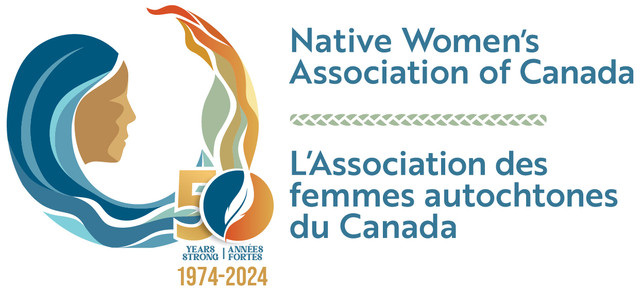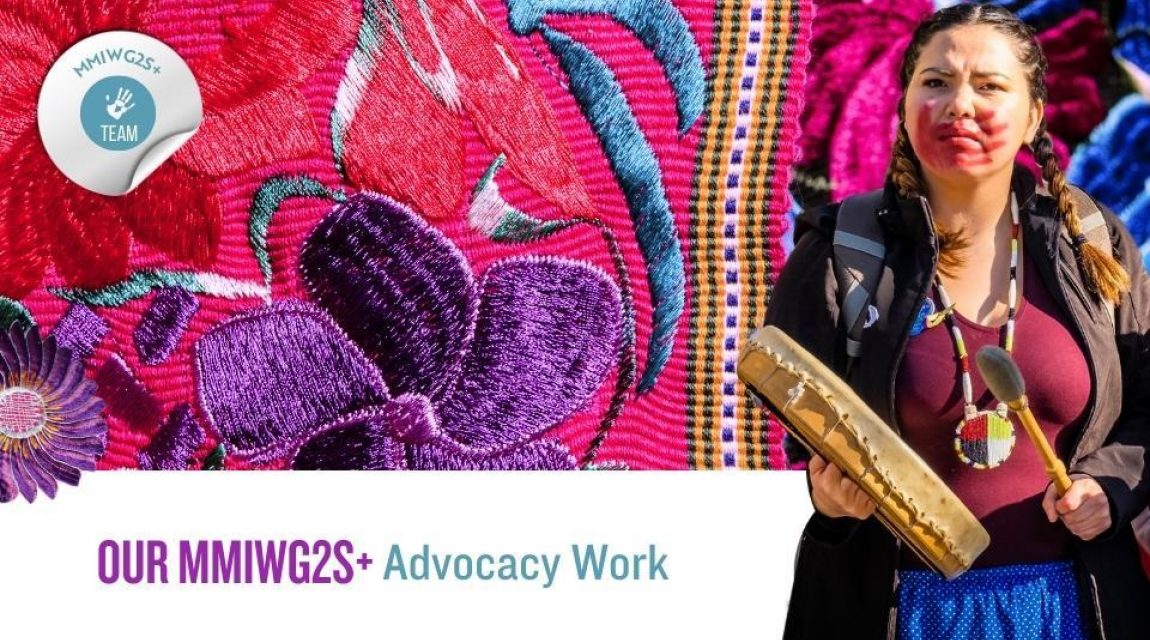International Advocacy
In June, NWAC’s MMIWG2S+ team recommended that the Government of Canada accede to the Inter-American Convention on the Prevention, Punishment and Eradication of Violence Against Women (known as the Convention of Belém do Pará). As the first legally binding international treaty that criminalizes all forms of violence against women and obliges States Parties to take appropriate measures to prevent, punish, and eradicate such violence, the Convention will have a significant impact on ensuring the safety of Indigenous women, girls, Two-Spirit, transgender, and gender-diverse (WG2STGD+) people in Canada.
NWAC believes that Canada must join the Convention, which has been ratified by 32 of the 35 member states of the Organization of American States (OAS). Canada should also fully implement its provisions as a means to advance and secure both gender-based human rights in particular and Indigenous rights in general, here in Canada and around the world.
The Convention will also provide an additional framework for the international community to investigate and assess the missing and murdered Indigenous women and girls (MMIWG2S+) genocide in Canada.
The MMIWG2S+ team also took part in the North American Working Group on Violence Against Indigenous Women and Girls (Trilateral Working Group). We collaborated with other Indigenous women leaders from Mexico, Canada, and the United States to share knowledge and best practices as a commitment to coordinated action to address the disproportionate levels of violence faced by Indigenous women and girls across the continent.
Finally, we met with the Data + Feminism Lab at the Massachusetts Institute of Technology to discuss the email alert tool it has developed. The tool will be helpful for collecting MMIWG2S+ case data from media sources, to add to the Safe Passage map.
National Advocacy
The meeting between the Indigenous Women’s Circle (IWC) for Women and Gender Equality Canada (WAGE) and Minister Marci Ien took place on June 14, 2023. Topics for discussion were economic prosperity, gender-based violence, the 2SLGBTQQIA+ Action plan, and transformational change.
Economic prosperity gives individuals more agency and independence, including the ability to leave unsafe situations. Statistics Canada data show an increase in Indigenous peoples’ educational achievements as well as gains in employment and business creation. The Government of Canada has made investments to address the barriers to entrepreneurship for Indigenous women, but more work needs to be done.
Pillar 4 of the National Action Plan to End Gender-based Violence involves “implementing Indigenous-led approaches.” There is inequity between the rates of gender-based violence (GBV) among Indigenous and non-Indigenous women. his inequity stems from unequal structures and different histories.
In August 2022, the Government of Canada launched the first Federal 2SLGBTQI+ Action Plan to advance the rights and equality of Two-Spirit, lesbian, gay, bisexual, transgender, queer, intersex and additional sexually and gender-diverse people. The plan focuses on six priority areas of action, with the third pillar involving “support Indigenous 2SLGBTQI+ resilience and resurgence” In recognition of the importance of safe and respectful spaces for 2SLGBTQI+ people. WAGE wants to address violence against 2SLGBTQI+ people while also making sure it is moving forward in the right way.
Closing the gap between Indigenous and 2SLGBTQI + people and their non-Indigenous counterparts includes taking down systems that were put in place to create and sustain these gaps. The IWC has made great progress in the last year towards transformative change, including establishing a leadership structure and work plan. There is interest in moving away from colonial approaches and ensuring that the IWC continues to listen to and be guided by your voices and those of Knowledge Keepers and Elders.

